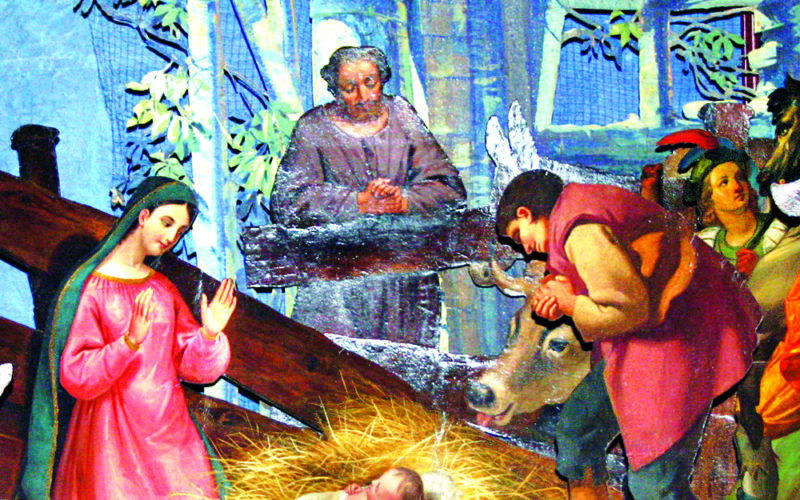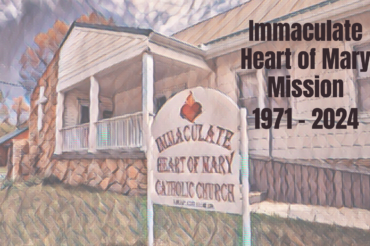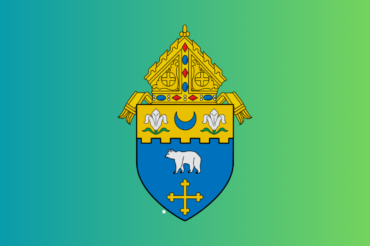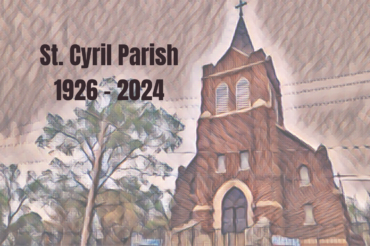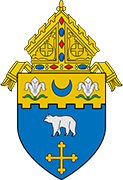Historical details and the Christian proposition

God’s Word in Everyday Living
Marc Cardaronella
In the beginning of this Christmas’ gospel, we get a curious detail.
Of course, it’s not the census. That gives us the reason Mary and Joseph are going to Bethlehem. But why do we need to know this was the census Caesar Augustus ordered while Quirinius was governor of Syria? Do we care when the census was? Is that just an extra detail for filler? No, there’s something important here. Something essential to the whole Catholic proposition of faith, and that’s what we’re going to explore here.
So, as if the first detail about Quirinius’ governorship wasn’t enough, Luke later adds this:
“In the fifteenth year of the reign of Tiberius Caesar, Pontius Pilate being governor of Judea, and Herod being tetrarch of Galilee, and his brother Philip tetrarch of the region of Ituraea and Trachonitis, and Lysanias tetrarch of Abilene, in the high-priesthood of Annas and Caiaphas, the word of God came to John the son of Zechariah in the wilderness…” (Luke 3:1-2).
Why do we care about all these names we can’t even pronounce? (Incidentally, I felt bad for the lector a few Sundays ago when he had to tackle this one.) Why all the historical detail? Well, just that—history. Central to the Christian proposition is that, all this stuff really happened. It’s historical. And, that’s the key.
I once heard well-known mythologist Joseph Campbell speak about this. Campbell was famous for identifying commonalities among the great religions and myths of the world and showing how this defined the human psyche. Campbell was himself a fallen-away Catholic and agnostic. His theories were often used to champion New Age Movement ideologies. Campbell remarked that many religions had miracle stories, but everyone knew they were metaphorical. The Buddha’s conception and birth were miraculous. No one believed that was real. It was symbolic. Only Christianity insisted the events surrounding Jesus’ birth really happened…and because of that, Campbell rejected it.
So why is it so important that this is real? Because, if it’s just a story, you can choose to believe, or not believe, as you see fit. But if this really happened, then there’s objective truth…and I’m not in control of it. I’m not free to make the world into what I want it to be. The historical detail sets this account as fact. It’s in the historical record. Luke’s audience probably knew those names and remembered that census. It was concrete and real. Fact, not fable.
The Christian proposition is this—at a specific time, in a specific place, God became a man. The spiritual became material and entered our world. God assumed human nature and was fully one of us. This is the Incarnation. The Catechism tells us there are four reasons God became man. First, to be an example of humanity unfettered by sin and show us how to live. Second, to definitively communicate his love by living with us, understanding our culture, and speaking our language. No ambiguities or misinterpretations. Third, to reconcile us with himself by dying on the Cross as a sacrifice for sin. Fourth, to make it possible for us to receive a share in his divine nature and overcome sin. This happens through faith, Baptism, and the sacramental life.
Jesus is both human and divine. In the Incarnation, God punches through the divide between the spiritual and the material. Jesus’ body became a conduit for spiritual power to flow into the material world. The Church is an extension of the Incarnation. In the Mystical Body of Christ, Jesus’ power continues to flow through the Sacraments where other material things: water, oil, bread, wine, also become conduits of grace.
If the Incarnation is just a metaphor, none of this is real. If God becoming man is just symbolic, then there are no sacraments, no spiritual power, no salvation from a fallen human nature. Other religions and ideologies believe we can save ourselves. All we need is a little wisdom and we can turn things around on our own. The metaphors and symbolisms are wisdom and inspiration. Nice, but you still must rely on yourself to make it happen. The truth is we need help.
Christianity says humanity has a problem and it can only be fixed with outside help. You can’t fix it yourself. You’re in a hole and can’t climb out. You need someone from the outside to lift you up. God came in, assumed human nature, and supplied spiritual power to elevate human nature out of its sinful condition. Nice stories won’t help you. Symbols won’t save you. Only a Jesus with divine power can rescue you. You need a savior.
The whole Christmas story only makes a difference if it’s real. That’s why Luke meticulously chronicles the historical details. He wants his readers to know this really happened. Christmas is about faith in a real event that saves us. We celebrate an historical birth. The true, miraculous birth of the God-Man, Jesus Christ. Emmanuel. God with us. God one of us. If you believe that fact and join yourself to him, you can be saved.
Marc Cardaronella is Director of the Office of Catechesis and Faith Formation.
Click here to view Midnight Mass readings on the USCCB website

